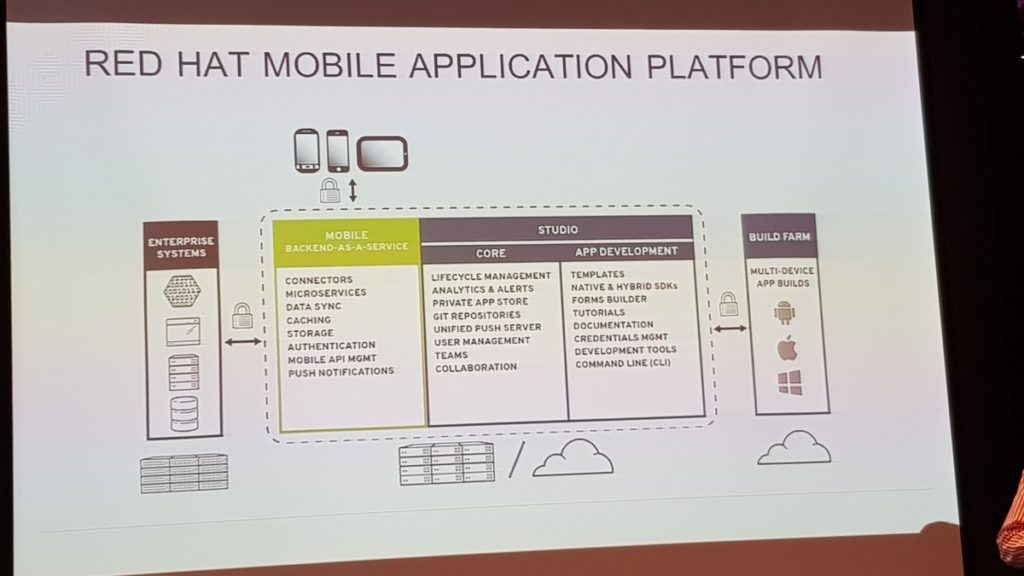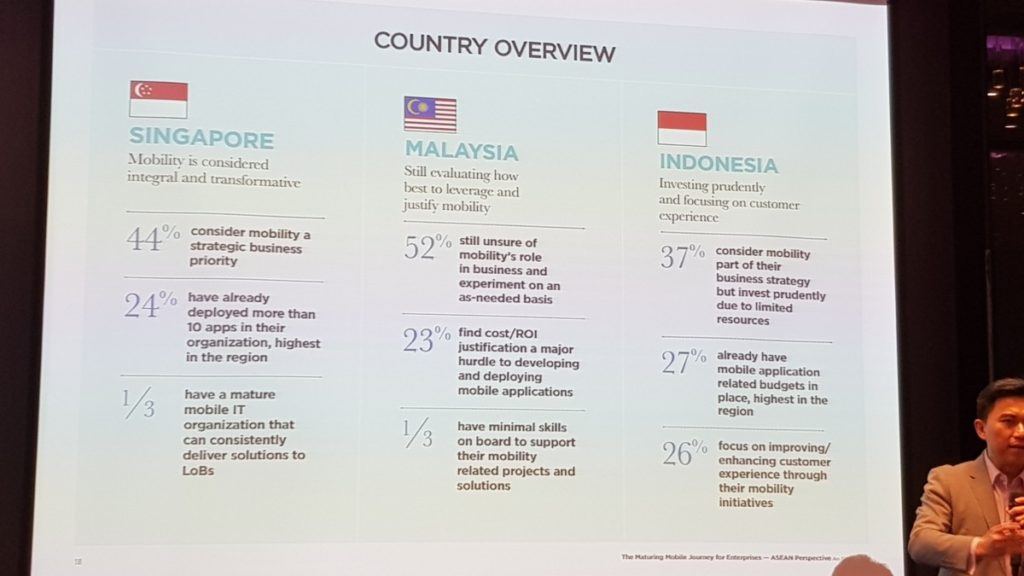
Red Hat study says mobile apps are the future for enterprises
“Going mobile is the most pervasive and effective way to reach your stakeholders,†says Gerald Khor, Business Development, Red Hat Mobile, Asia Pacific at a recent seminar where he and Damien Wong, Vice President and General Manager, Red Hat, ASEAN, shared more about the findings of a recent case study commissioned by Red Hat about insights into mobile enterprise applications.
While most people are familiar with installing and using apps on their smartphones, enterprise grade apps and software are more highly focused affairs, often commissioned or developed in-house to cater to very specific needs in organisations such as managing stock inventory of meals and supplies for planes, staffing rosters for personnel scattered across multiple countries and more. While such corporate systems systems do exist, they’re often clunky affairs that don’t appear in app form. Since most people are familiar with smartphones and how to get about on apps and the like, it makes it a much easier affair to create, adopt and deploy smartphone apps in an organisation to fulfill corporate or organisational needs which is what Red Hat was keen to discover in their study. Something enterprises use to update their applications is a low code platform which enables non-technical members of staff to make adjustments to the software without the need for extensive coding knowledge. This frees up time dedicated to such things by IT departments who can pursue more worthwhile ventures.
Research company IDC interviewed 275 senior IT decision makers that employed more than 500 staff each and have dedicated IT teams focused on harnessing and using mobile applications in Singapore, Indonesia and Malaysia. The findings of the study, dubbed ‘Mobility Initiatives for Enterprises’, found that in terms of mobile applications, three major factors across multiple organisations in multiple different industries influence an organisation’s mobility implementation: improving customer experiences, gaining a competitive advantage and improving employee productivity.
Banking and financial services are one step ahead and seek to leverage their mobile apps as means of sourcing new revenue streams with two in five banks in the region having a budget for mobile app development. Manufacturing organisations on the other hand are seeking to make collaboration easier across multiple locations with new mobile applications.
Across the region, nearly half of the organisations in the region have deployed at least five custom-built mobile apps with close to 6 out of 10 having an intent to deploy as many apps or more over the next 12 months or more. The biggest pickle though is the distinct lack of mobile-specific skills present in many organisations to drive the roadmap towards an enterprise mobility campaign. Nearly 50% of organisations interviewed have minimal skills or are required to have them contracted out with Malaysia having the most acute lack of knowledge of such skills in organisations at 60% of Malaysian organisations interviewed.
The demand for enterprise driven mobility apps is there. According to Red Hat, demand for mobile development services will be five times more than the capabilities of internal IT organisations are capable of delivering. As a means to offer easier deployment and rollout to organisations, Red Hat today showcased their Red Hat Hat Mobile Application Platform suite that has been used by a host of organisations globally including Samsung Business, 3M, Royal Bank of Scotland (RBS), Telefonica, Electronic Arts and more to allow for faster, more effective and secure app creation and deployment. As an example, the Rail Infra Company was able to deploy a productivity app to thousands of their workers in just 8 hours which is quite an achievement indeed in such a short duration of time.

A key benefit with the Red Hat Mobile Application Platform suite is the ability to create multi device builds across iOS, Windows and Android devices to suit a multitude of devices existing in the market. By 2020, Red Hat said that 75% or more of organisations globally will be adopting a mobile development app development app platform in some form or fashion to accelerate their digital transformation strategy. “Transforming your digital assets wholistically is the key to becoming a digital native.†says Damien. “With mobile done right the benefits are tremendous.†he added. For more details on the Red Hat Mobile Application Platform, swing by www.redhat.com/mobile.
Â

From left: Mr. Damien Wong, Vice President & General Manager for ASEAN, Red Hat; Gerald Khor, Head of Business Development, Mobile for Asia Pacific Red Hat; Chew Kai Peng, Country Manager for Red Hat Malaysia

